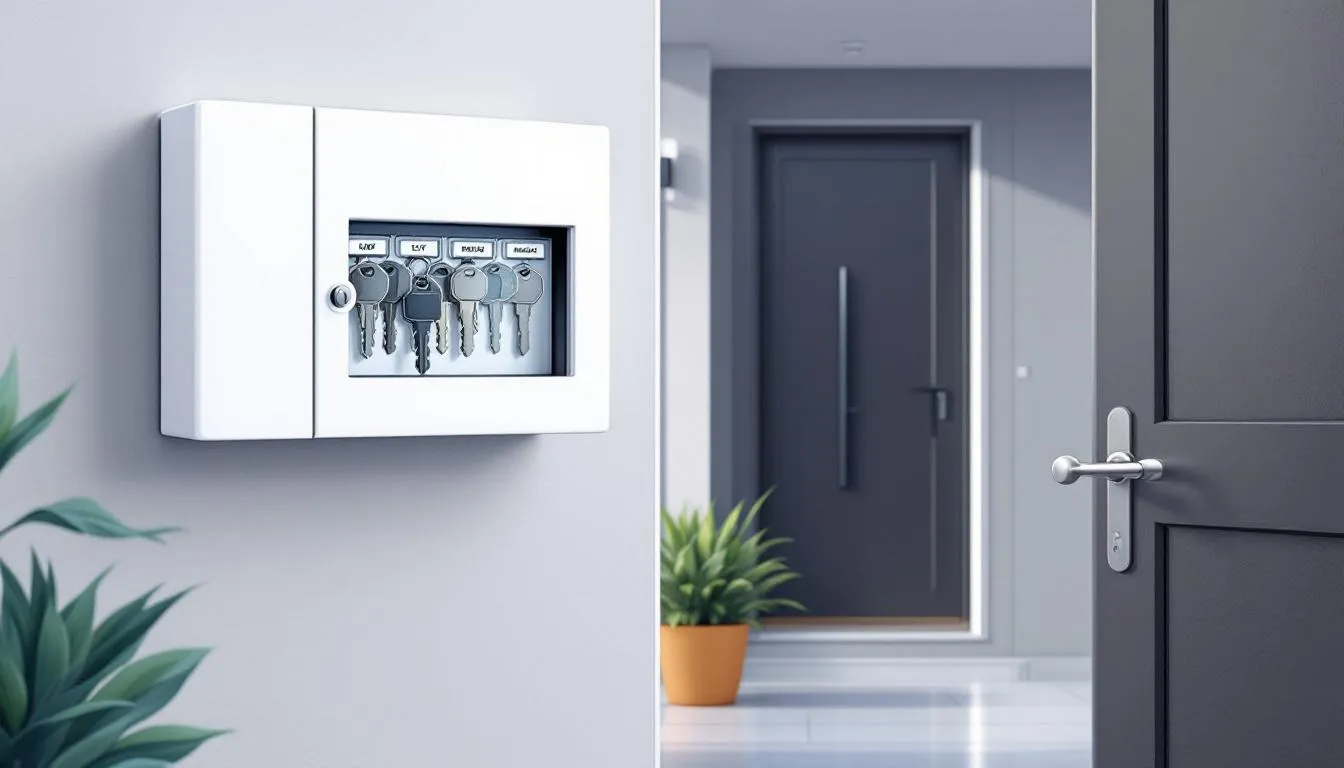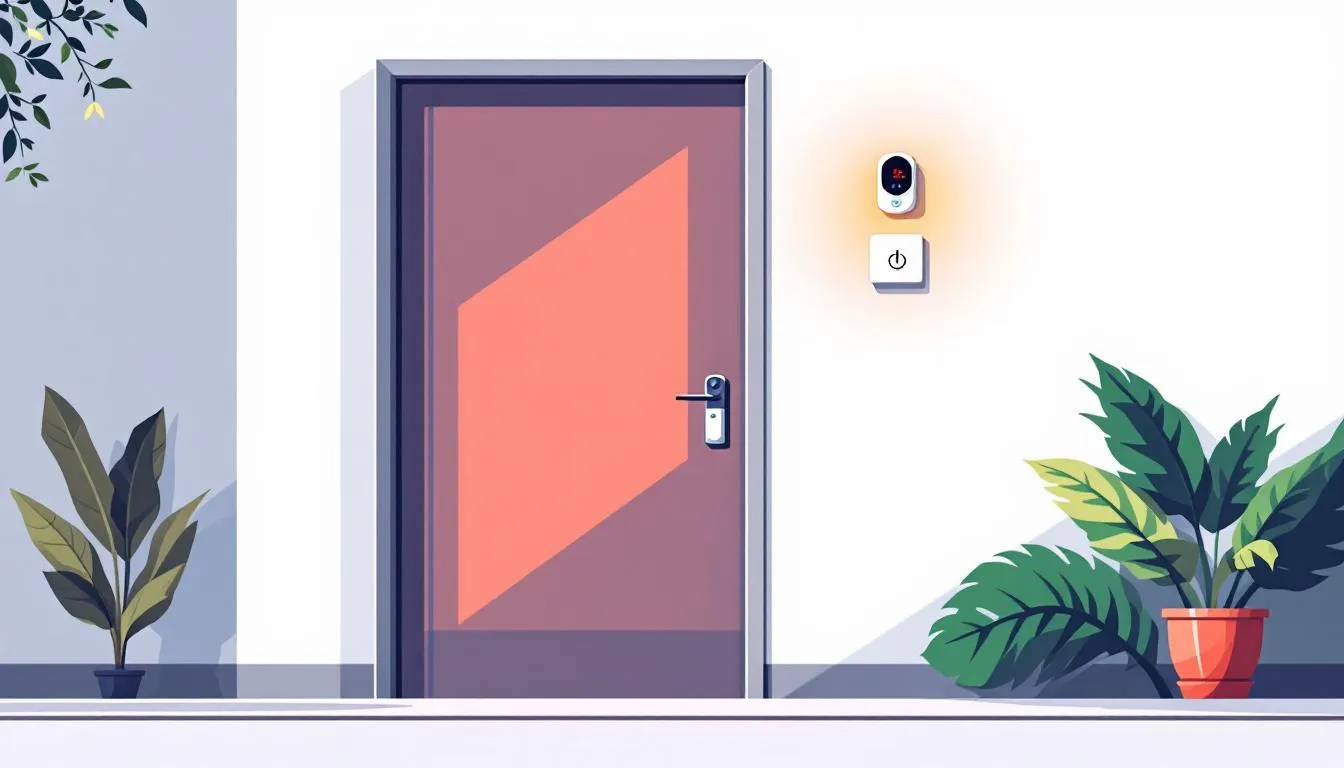Can you really trust a house cleaner with your keys? It’s a question that comes up often, especially when you’re trying to make life easier but also keep your home safe. After all, your home is your castle, and handing someone the keys to it can feel like a big step. You might wonder, “What if something goes missing?” or “Will they treat my home with respect?” These are completely natural concerns.
In this guide, we’ll walk through how to strike the right balance between convenience and security. We’ll look at what other homeowners worry about, how to manage key access smartly, and what to look for in a trustworthy cleaning service. Whether it’s your first time hiring a cleaner or you’re just not sure about leaving a key, we’ll help you make a decision you can feel good about.
Key Takeaways
- If you’re handing over your keys to a cleaner, take a moment to think about home security. A key safe or smart lock can go a long way.
- Hiring a reputable cleaning company makes a world of difference. Check their reviews, ask about insurance, and don’t be afraid to ask questions.
- Not ready to hand over a key? That’s okay. You can use a smart lock with a temporary code or just be home during the clean until you feel more comfortable.
The Importance of Securing Your Home
Letting someone into your home, especially with a key, can feel like a big leap. It’s completely normal to worry about what could go wrong. Things like break-ins or losing control over who enters your space can weigh heavily on your mind. But with a few smart precautions, you can make access safe and stress-free.
Sometimes, in trying to make things convenient at cleaning time, people end up making their homes less secure without meaning to. Hiding a key under the mat or in a pot might seem harmless, but those are exactly the first places someone with bad intentions might look. The trick is to find safer ways that still make things easy for everyone.
You don’t have to give up the comfort of a professional clean just to keep your home safe. With the right tools and a trustworthy cleaner or company, you can have both peace of mind and a spotless space.
Common Concerns About Giving House Keys to Cleaners
Worried about giving your house keys to a cleaner? You’re not alone. It’s a big step and it’s completely normal to feel uneasy about it. For many people, the thought of someone else having access to their private space can stir up a lot of emotions.
Theft is one of the first fears that comes to mind. Handing over keys to someone you might not know well requires a level of trust that can feel daunting at first. Then there’s the issue of control. For some, it’s not about distrust – it’s about feeling vulnerable, not knowing exactly who has access or when.
There’s also the worry of what happens if something goes wrong. If a house cleaner loses customer keys, an item is damaged or missing, it can create awkward situations. But the good news is, these kinds of concerns can often be eased with clear communication and a few thoughtful precautions.
Choosing a Reputable Cleaning Company
This is where working with a reliable, professional cleaning service can make all the difference. A good company will take your concerns seriously and have policies in place to protect both you and their team.
Here are a few things to look for:
- Ask for references or check online reviews to see what others have experienced.
- Look for companies that are upfront about their policies and easy to communicate with.
- Make sure they carry insurance like general liability and workers’ comp just in case.
Some cleaning businesses also have a policy where staff don’t personally carry customer keys, which can be reassuring. The right company will respect your space and earn your trust, giving you the confidence to relax while they handle the cleaning.
Secure Key Management Practices
Let’s be honest, handing someone your house keys is a big gesture of trust. But a few simple habits can help you feel confident about it.
- A permanent key lock box or key safe is a great solution. These are sturdy little devices that let your cleaner access a spare key with a code, so your front door doesn’t need to be left unlocked.
- You can pick one up at your local hardware store. They’re easy to install and especially useful if you’re not home during the clean.
When it comes to labelling keys, less is more. Just jot down the cleaner’s first name and maybe the first letter of your surname. Avoid anything that could connect the key back to your address. That tiny change goes a long way in keeping things safe.
If you want extra peace of mind, there are also digital tools that track when keys are accessed and by whom. These often support layered security codes for added protection, so only authorised individuals gain entry. Using different security codes for different cleaners or time windows can give you added flexibility and control.
With these thoughtful practices in place, you can give your cleaner access without sacrificing your peace of mind.
How Cleaners Handle Keys Responsibly
Good cleaners know that being trusted with a key isn’t just about getting the job done. It’s about respecting your home and your peace of mind. That’s why many professional cleaning companies have solid systems in place to handle keys safely and responsibly.
Usually, each cleaner is given the specific key they need for a job, which helps prevent any confusion or mishandling. Some companies even use digital tools that log who accessed a key and when, adding another layer of security.
Many cleaning companies also ask their staff to sign confidentiality agreements around key access, so you’re not left wondering who has what. They’ll often run regular checks to make sure their procedures are being followed, so nothing slips through the cracks.
If your cleaner works for a company that takes these steps, you can feel more confident that your keys and your home are in good hands.
Alarm Codes vs. House Keys
When it comes to letting a cleaner into your home, you’ve usually got two main options: handing over a physical key or giving them a code to get in. Each approach has its pros and cons, and it really comes down to what makes you feel most secure.
An alarm code is great because it’s flexible. You can give someone a temporary “cleaners code”, change it anytime, and set it to expire when you no longer need it. It’s a good way to stay in control of who’s coming and going, and it can work in tandem with a security alarm for added peace of mind. Using a dedicated alarm code also makes it easy to monitor who entered and when.
House keys, on the other hand, are simple and straightforward. Some people just feel more comfortable with the old-school method. But if a key goes missing or gets copied without your knowledge, that can pose a serious security risk.
No matter what you choose, make sure access is managed properly, whether that’s using a lockout system, a smart lock, or just keeping track of who has what security code. The goal is always the same: to keep your home safe while making things easy for your cleaner.
Building Trust with Your House Cleaner
Trust doesn’t happen overnight, especially when it comes to letting someone into your personal space. But over time, a reliable house cleaner can become someone you count on – not just for a sparkling home but for that extra sense of comfort and peace of mind.
One of our families shared how giving their cleaner access while they were out actually strengthened their trust. With open communication and clear expectations, it felt less like a risk and more like a helpful routine.
If you’re thinking about hiring a cleaner, try to keep the conversation open from the start. Talk about what you expect, how key access should be handled, and what makes you feel comfortable. This kind of honesty helps build trust on both sides.
Here are a few practical ways to support that trust:
- Set up a simple system to track who has access to keys or codes.
- Go with a reviewed and insured cleaning business – it adds an extra layer of protection.
- Include your cleaner in any chats about how you’d like things done around the home. A little collaboration goes a long way.
If you’re using key storage equipment like a secure cabinet or lock box, make sure it’s one that alerts you if anything goes wrong. It’s just another way to stay in the loop and feel confident about who’s coming and going.
What to Do If You’re Uncomfortable Giving Out Keys
Not quite ready to hand over a house key? That’s completely okay and you’re not alone. Even with all the smart lock options and access tools available, some people just don’t feel right giving out a key or leaving one outside. If that’s you, there are still a few workarounds that can keep things safe and stress-free.
One option is to use a keyless entry system. Devices like smart locks or keypad deadbolts let you set a unique code just for your cleaner. You can update it, disable it, or change it at any time. Some models even let you schedule access for specific days or times.
If a smart lock isn’t for you, a timed lockbox could work. You set a code and time window, and your cleaner only has access during that period. It’s great if you don’t want to risk leaving keys out.
Another idea? Some homeowners opt to be home during the clean, especially for the first visit, until they’re comfortable with the arrangement. And if you’re away but want visibility, a front-door camera can offer reassurance.
The most important thing is that you choose a method that feels right to you. There’s no one-size-fits-all, and your cleaner should be willing to work with whatever access method helps you feel safe.
Lockout Procedures and Policies
Some cleaning companies have lockout policies in place, which means that if your cleaner arrives but can’t get access to your home (say a key isn’t left out or a code doesn’t work) you may still be charged a fee. This is because cleaners often block out that time and can’t easily replace the job last minute.
To avoid lockout fees and skipped services, it’s best to check your cleaning service’s lockout policy and agree ahead of time on what should happen if access can’t be provided. Whether that means having a backup contact, installing a key safe, or setting a clear window for arrival, a bit of planning helps keep things running smoothly for both sides.
If you’re ever unsure, ask the company what they recommend. Having a simple plan in place helps prevent missed cleans, reduces stress, and keeps the experience as smooth as possible.
Summary
Letting someone into your home and giving them access when you’re not there is a big decision. It’s natural to have questions or hesitations, but with the right steps, it can be both safe and incredibly convenient. Plenty of homeowners have found a great balance by being cautious, clear, and intentional.
Choosing a reputable cleaning company you feel good about is a huge part of that. So is putting a few practical safeguards in place, like using a lock box, smart lock, or clear access plan. The key is staying in control of how access is given and making sure everyone is on the same page.
Trust builds over time, especially when there’s open communication and mutual respect. Whether you prefer to hand over a key, set up a code, or be home for the clean, the right arrangement is the one that makes you feel safe and supported while your home gets the care it deserves.
Frequently Asked Questions
What are the common concerns about giving house keys to cleaners?
It’s completely normal to feel a little uneasy about handing your keys to someone you might not know very well. Many people worry about security, potential theft, or even just the discomfort of not being in control of who’s coming and going in their home. These are all valid concerns and you’re definitely not alone in thinking about them.
How can I make sure my keys stay secure if I do hand them over?
A good first step is to use a key safe or lock box with a secure code. It’s way better than hiding a key under the mat. And when it comes to labelling, less is more. Avoid anything with your address or full name; just a simple identifier will do. Little details like this help keep things low-risk.
Would using an alarm code be safer than handing over a key?
In many ways, yes. Alarm codes (or smart lock codes) give you flexibility. You can create a temporary code just for your cleaner and change it whenever you want. That way, you stay in control without having to physically get a key back every time.
How can I build a trusting relationship with my cleaner?
Start by being open. Let them know what’s important to you and be honest about any concerns you might have. Giving feedback (both positive and constructive) helps build mutual respect. Most cleaners want to do a great job and knowing you trust them can really strengthen that relationship.
What should I do if I’m just not comfortable giving out keys?
That’s totally okay! There are lots of alternatives. You could:
- Use a smart lock or keypad with a code that you control
- Be home during the clean, especially for the first couple of visits
- Install a doorbell camera to give you peace of mind
The most important thing is that you feel safe and comfortable with the setup. A good cleaner will understand and work with whatever arrangement works best for you.






